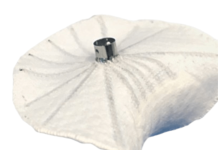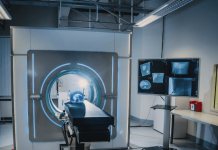Iterative Scopes today announced positive trial data in a study of its colorectal cancer screening algorithm, Skout.
Cambridge, Massachusetts-based Iterative Scopes designed Skout as a computer-aided device (CADe) that uses artificial intelligence and computer vision technology to detect suspicious tissue and provide real-time feedback for gastroenterologists performing the procedure.
In a randomized, controlled prospective clinical trial involving 1,359 patients, Skout demonstrated statistical superiority of overall adenoma detection. The trial consisted of two cohorts in which one underwent a colonoscopy procedure using Skout AI software and the other underwent a colonoscopy without Skout. There were 22 board-certified, gastroenterologists involved in the trial from five academic medical and community centers in the U.S.
RELATED: Theraclion Announces First Patients Treated With SONOVEIN® in the US
According to Iterative Scopes, adenomas per colonoscopy increased significantly with the use of its Skout AI software compared to the control, and true histology rate did not significantly change between cohorts. The company said there was a 27% relative improvement in adenomas per colonoscopy (APC) detection in an average-risk patient population, which represented one additional adenoma detected among every 4.5 patients screened.
“The results from this study indicate that CADe polyp-detection devices can enhance the quality of colonoscopy and are an important addition in the endoscopy suite,” said Dr. Aasma Shaukat, Robert M. and Mary H. Glickman professor of medicine and gastroenterology at NYU Grossman School of Medicine. “Improving detection of adenomas per colonoscopy without increasing the rate of removal of healthy tissue has the potential of making our colonoscopy practice even more effective in the prevention of colorectal neoplasia.”




